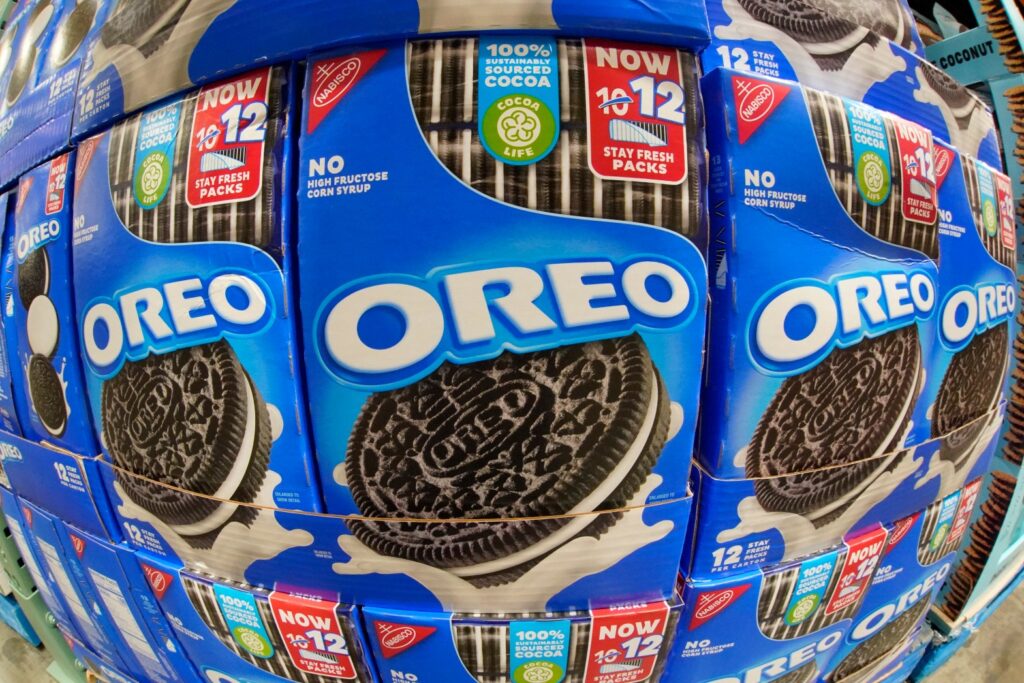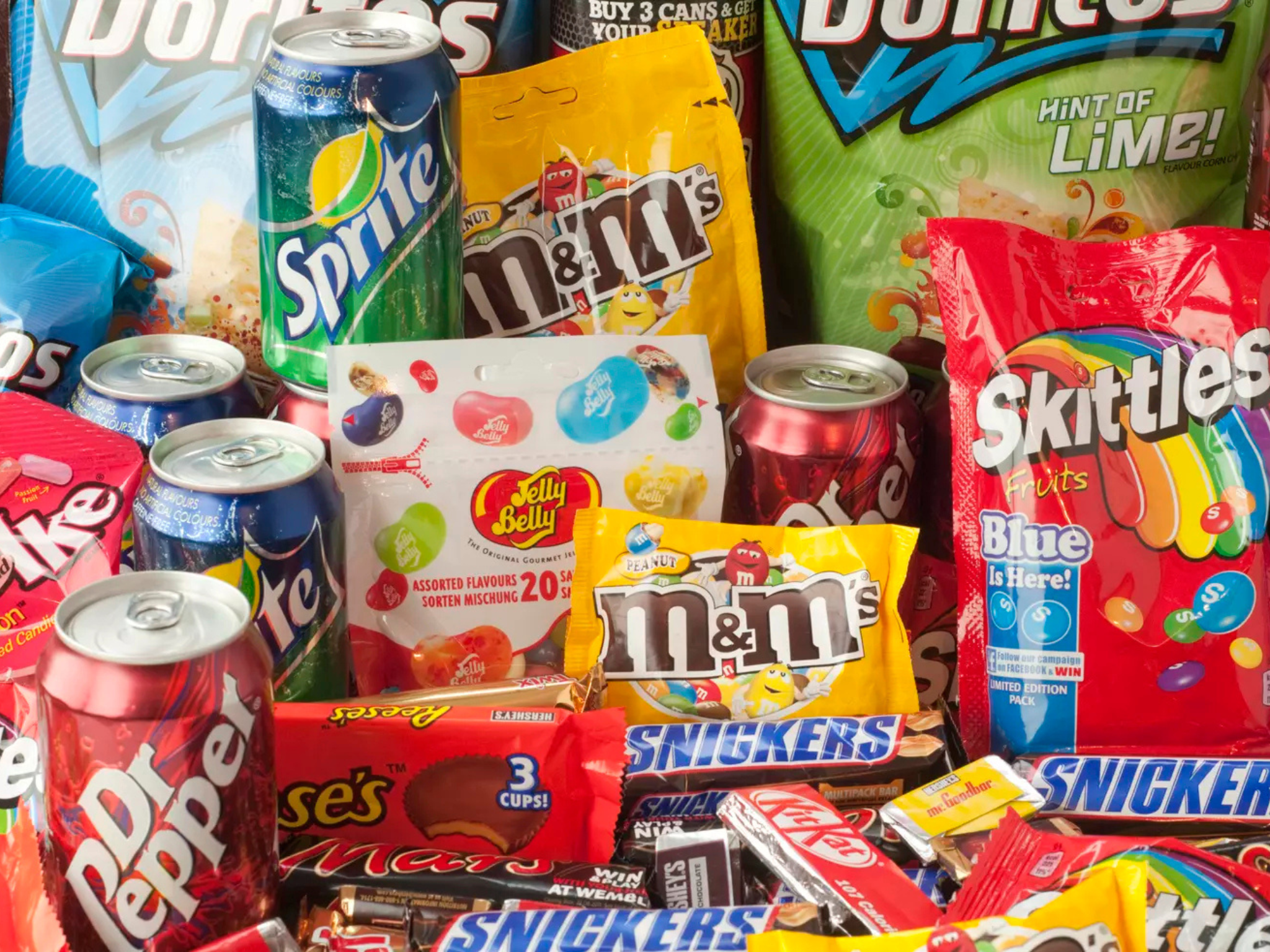Big Food Hit with First-of-A-Kind Lawsuit for Marketing ‘Addictive’ Ultra-Processed Products to Kids
5 Mins Read
A teenager in Pennsylvania has sued major food firms like Coca-Cola and Nestlé for allegedly causing illnesses in kids with ‘addictive’ ultra-processed foods.
Coca-Cola, Nestlé, Kraft Heinz, Mondelēz International and seven other Big Food companies are facing a lawsuit for engineering ultra-processed foods (UPFs) to be as addictive as cigarettes.
Filed by Bryce Martinez, an 18-year-old from Pennsylvania, the first-of-a-kind case alleges that by marketing these foods to kids, they have contributed to them developing chronic conditions.
The 148-page document submitted to the Court of Common Pleas in Philadelphia County notes that Martinez was diagnosed with fatty liver disease and type 2 diabetes when he was 16, after consuming “harmful levels” of UPFs from these companies. These conditions “did not exist in children” prior to the mainstreaming of these products, the lawsuit claims.
The other Big Food companies named in the case are Mars, Kellanova, PepsiCo, Conagra, WK Kellogg Co, Post Holdings, and General Mills. The lawsuit involves claims for conspiracy, negligence, fraudulent misrepresentation and unfair business practices, and seeks an unspecified amount of compensation and punitive damages, according to Reuters, which first reported on the lawsuit.
“The story of ultra-processed foods is an egregious example of companies prioritizing profits over the health and safety of the people who buy their products. The consequences of these companies’ alleged actions have allegedly harmed thousands of children and families,” says Mike Morgan, partner at Morgan & Morgan, the law firm representing Martinez.
“Executives at the defendant companies have allegedly known for at least a quarter-century that ultra-processed foods would contribute to illnesses in children, but these companies allegedly ignored the public health risks in pursuit of profits.”
Straight out of the tobacco playbook

According to the lawsuit, Martinez was “chronically exposed to harmful levels” of UPFs made by the defendants, including Oreos, Oscar Meyer hot dogs, Kit Kats, Lay’s, Starbucks Bottled, M&Ms, Haagen Dazs, and Corn Flakes.
These foods, the lawyers claim, have caused chronic illnesses that will worsen and that Martinez will suffer for the rest of his life. “Although such diseases were unheard of in children 40 years ago, they are now common, and treating them constitutes a large fraction of pediatric medical practice,” the complaint reads.
It details the calculated strategies that the food companies took to target children with UPFs, from internal memos and strategic meetings to extensive research that allegedly leveraged our biology and neurology to create addictive substances.
These are tactics straight out of the Big Tobacco playbook, with companies like Phillip Morris and RJ Reynolds taking over the food system from the 1980s with acquisitions of firms that are now Kraft Heinz and Mondelēz.
“During this time, they used their cigarette playbook to fill our food environment with addictive substances that are aggressively marketed to children and minorities,” the lawsuit states. “UPF formulation strategies were guided by the same tobacco company scientists and the same kind of brain research on sensory perceptions, physiological psychology, and chemical senses that were used to increase the addictiveness of cigarettes.”
It continued: “In doing so, Big Tobacco companies intentionally designed UPF to hack the physiological structures of our brains. These formulation strategies were quickly adopted throughout the UPF industry, with the goal of driving consumption, and defendants’ profits, at all costs.”
This focus on profit came at the expense of the health of American children, according to Morgan & Morgan attorney Rene Rocha. “These companies allegedly use the tobacco industry’s playbook to target children, especially Black and Hispanic children, with integrated marketing tie-ins with cartoons, toys and games, along with social media advertising,” she says.
“Our goal is to hold these companies responsible for their alleged efforts to make ultra-processed foods as addictive as possible and get them into the hands of children.”
The current commissioner of the US Food and Drug Administration Commissioner, Robert Califf, recently agreed that UPFs are probably addictive.
Trade association hits back

UPFs have been in the limelight over the last couple of years, with the rise of books like Ultra-Processed People, a shift in consumer awareness and demand for clean-label and natural foods, and scientists raising alarms about their health impacts.
In the US, UPFs make up over 73% of the food system, as well as two-thirds of the average diet of a child. Research suggests that nearly 12% of American kids demonstrate behavioural indicators of addition in response to UPFs, a problem that Morgan & Morgan believes persists because of targeted marketing to these young demographics.
The lawsuit cites dozens of studies that indicate the alleged ill effects of UPFs, including cancers, cardiovascular disease, irritable bowel syndrome, dementia and adverse mental health outcomes.
UPFs are part of the Nova classification, which places food into four subgroups, based on the amount of processing. They’re at the bottom of the ladder, comprising industrial formulations and techniques like extrusion or pre-frying, and cosmetic substances like high-fructose corn syrup and hydrogenated oils.
But nutritionists are at loggerheads about this correlation between food processing and nutrition – for many, one has nothing to do with the other. It has led many experts and companies to call studies linking UPFs with health detriments into question.
The Consumer Brands Association (CBA) – which represents over 60 CPG companies, including all but one of the defendants – established a website to combat “consumer confusion” around UPFs earlier this year.
“There is currently no agreed-upon scientific definition of ultra-processed foods,” Sarah Gallo, senior VP of product policy at the CBA, told Reuters. “Attempting to classify foods as unhealthy simply because they are processed, or demonising food by ignoring its full nutrient content, misleads consumers and exacerbates health disparities.”
The lawsuit is particularly notable as it comes in the lead-up to Donald Trump’s second presidency, during which Robert F Kennedy Jr will be in charge of America’s health and food systems. Kennedy has been highly critical of UPFs and has pledged to remove them from school lunches – although scientists advising on the national dietary guidelines for next year have avoided mentioning UPFs due to a lack of research.



